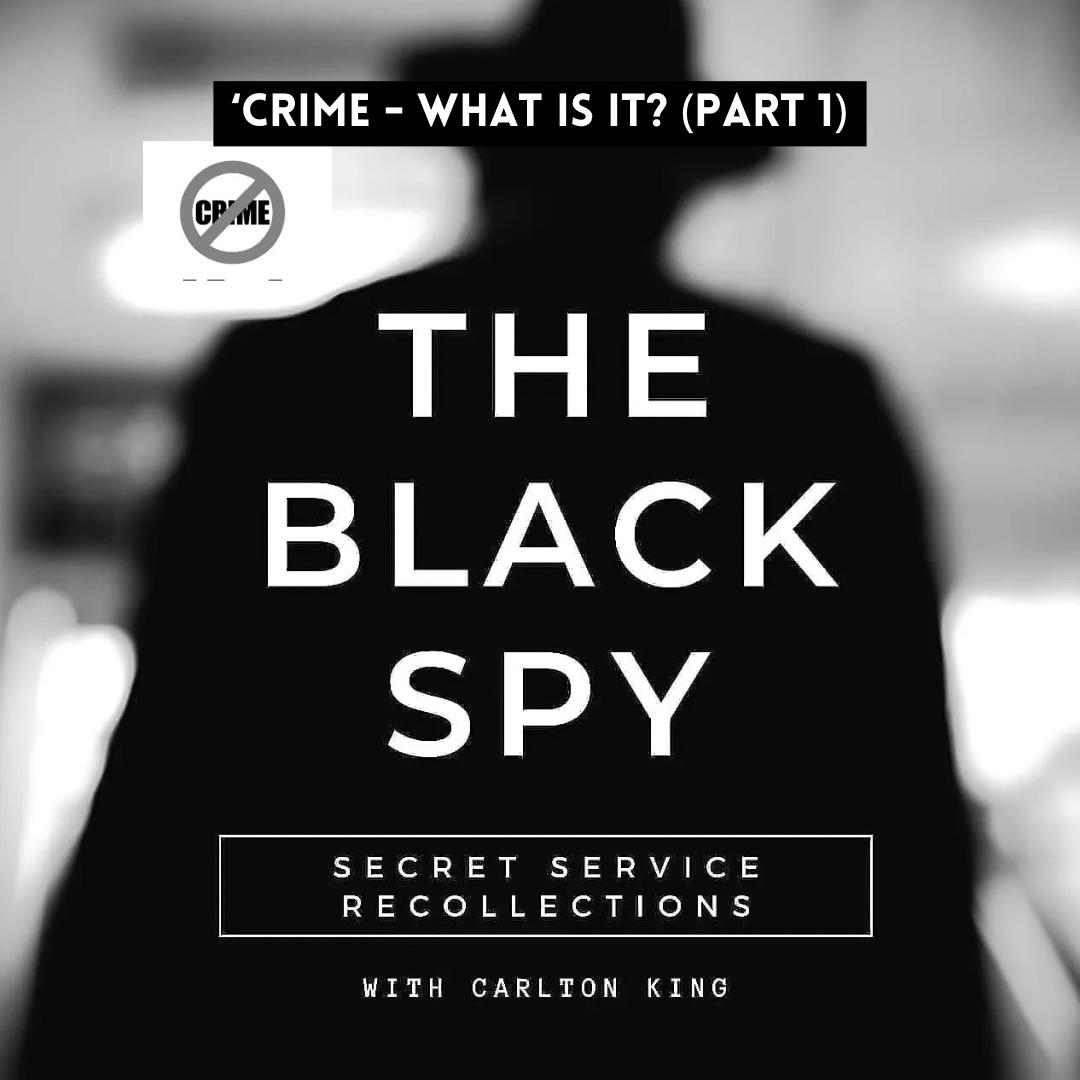

Crime - What is it? (Part 1)
Crime - What is it? (Part 1) Black Spy Podcast, 201, Season 21, Episode 0002 Over the next two weeks the black spy Podcast will look into what CRIME is navigating the undermentioned points. In the UK, the creation of criminal law is the responsibility of Parliament. A crime is not considered such unless it is defined in statute (an Act of Parliament) or recognised under common law (judicial precedent). For example, theft is defined under the Theft Act 1968, while murder is a common law offence. Parliament introduces new criminal offences or modifies existing ones in response to societal change, public concern, or evolving threats—such as terrorism or online abuse. The legislative process involves proposing a bill, debating it in both the House of Commons and House of Lords, and receiving Royal Assent before it becomes law. The judiciary then interprets these laws and ensures they are applied fairly and consistently. It is important to understand that not all harmful acts are criminal. For instance, a breach of contract may be serious but is dealt with in civil rather than criminal courts. Crime carries an element of public condemnation and involves the state acting against the accused on society's behalf. Once a law is in place, enforcement falls primarily to the police. In the UK, policing is carried out by local forces across England, Wales, Scotland, and Northern Ireland, with the Metropolitan Police and other specialised units (such as the National Crime Agency) handling national and transnational threats. Police officers investigate crimes, protect the public, gather evidence, and arrest suspects where appropriate. However, their powers are bounded by legal and ethical frameworks, including the Police and Criminal Evidence Act 1984 (PACE), the Human Rights Act 1998, and codes of practice. The modern police role extends beyond reactive enforcement. Officers are also expected to prevent crime, engage with communities, and build trust. This includes neighbourhood policing, intelligence gathering, and working in partnership with local agencies to address root causes like poverty, drug misuse, or domestic abuse. Increasingly, police use data and technology—such as predictive analytics or body-worn cameras—to support transparency and efficiency. Ultimately, crime in the UK is a legal construct shaped by democratic processes. The police operate as agents of the law, balancing enforcement with public service, and must always act within the confines of legality and proportionality to maintain legitimacy and uphold justice. So, if you want to continue learning whilst being entertained this and next week's continuation of this subject are must listen episodes. Please don't forget to subscribe to the Black Spy Podcast for free, thereby you'll never miss another episode. To contact Firgas Esack of the DAPS Agency go to Linked In To contact Carlton King by utilising any of the following: To donate - Patreon.com/TheBlackSpyPodcast Email: carltonking2003@gmail.com Facebook: The Black Spy Podcast Facebook: Carlton King Author Twitter@Carlton_King Instagram@carltonkingauthor To read Carlton's Autobiography: "Black Ops – The incredible true story of a (Black) British secret agent" Click the link below: https://amzn.eu/d/fmzzq9h
Episode Details
About This Episode
Crime - What is it? (Part 1) Black Spy Podcast, 201, Season 21, Episode 0002 Over the next two weeks the black spy Podcast will look into what CRIME is navigating the undermentioned points. In the UK, the creation of criminal law is the responsibility of Parliament. A crime is not considered such unless it is defined in statute (an Act of Parliament) or recognised under common law (judicial precedent). For example, theft is defined under the Theft Act 1968, while murder is a common law offence....